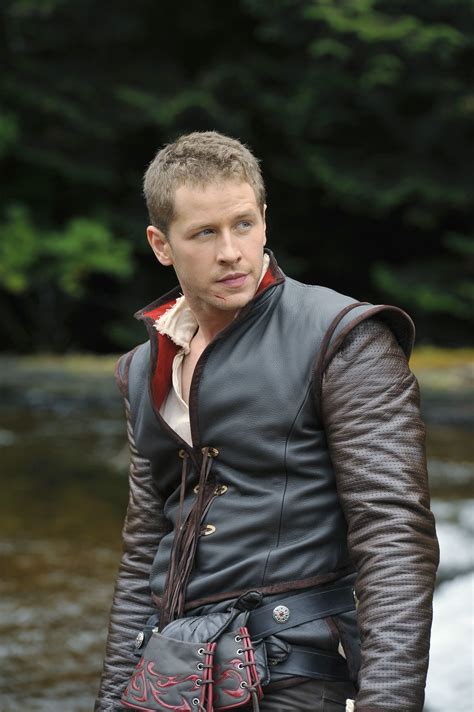Цитата Лоис Лоури
Я пишу книги, потому что меня всегда восхищали истории и язык, и потому что я люблю думать о том, что движет людьми. Написание рассказа... "Дающий" или любого другого... это просто исследование природы поведения: почему люди делают то, что они делают, как это влияет на других, как мы меняемся и растем, и какие решения мы принимаем вместе с ними. путь.
Связанные цитаты
Что бы это ни было, у людей есть проблемы, и это глубоко влияет на вас. Таким образом, вы должны докопаться до сути и не позволять этому влиять на ваши жизненные решения и действительно понимать, почему вы принимаете решения, которые вы принимаете, чтобы вы могли понять, как этого не делать, поэтому я всегда призываю людей спрашивать, почему а затем по-настоящему понять вас, потому что это единственный способ стать самым успешным и самым счастливым.
Люди все время сочиняют в уме вымысел — каждый раз, когда мы читаем новостной материал, представляющий интерес для людей, или реальную криминальную историю, мы оказываемся очарованными, потому что пытаемся понять, почему люди ведут себя так, а не иначе, почему они выбор, который они делают, как мы становимся теми, кем мы становимся.
Я думаю, что на самом деле ритмичность книжек с картинками и рассказов для юных читателей — это способ помочь детям полюбить язык, то, что вы можете с ним делать, и то, как он звучит в вашем диапазоне. В этом есть музыкальность, но, с другой стороны, они получают историю, идеи и контекст. Я думаю, что это способ вовлечь детей, и я также думаю, что когда дети находятся рядом с людьми, которые любят книги, это передается им.
Я очарован тем, из чего состоит личность, как человек становится собой, насколько это ответ другим и насколько это сущность самого себя. Мы учимся быть людьми у других людей. Тогда вы думаете - что такое личная свобода? Возможно ли самотворчество? Эта книга посвящена моей подруге, которая действительно воссоздала себя. Я этого не делал - я остался в цирке и являюсь артистом цирка, как и мои родители. Я делал то, для чего был воспитан - я рад, что сделал это, но я очарован людьми, которым удалось сделать что-то еще. Мне всегда было очень интересно узнать о других людях.
Когда я писал эту книгу, я принял сознательное решение изобразить в реальном времени, как я относился к ней, как я думал об этом и как я изображал это другим людям, потому что я хотел, чтобы история была историей перехода от этого к другому. более честная оценка, более приемлемая оценка себя и других людей в этом мире.
Я люблю писать истории, потому что я могу (более или менее, иногда) действительно СДЕЛАТЬ это. Это правда. Мне нравится идея, что история — это своего рода площадка для создания крутых языковых эффектов — площадка для прославления языка, а значит, и мира. И краткость является частью проблемы. Мне нравятся истории, потому что я их понимаю — я знаю, как создать красоту или что-то вроде красоты в этом режиме.
Я сам неверующий. Но я думаю, что в религии так много того, что не соответствует действительности, что касается того, почему люди занимаются ею и что она для них значит. Вы можете развенчать, почему вы думаете, что нет никаких физических доказательств существования Бога, и почему история Иисуса на самом деле не происходила таким образом, и тому подобное всю жизнь, и это не изменит того, какую роль религия играет в жизни. жизнь людей и то, как они к этому относятся, и как это делает их жизнь лучше или хуже.
С точки зрения экономики, да, очевидно, что появление электронных книг и то, как люди предпочитают читать книги, оказывает большое влияние на экономику игры. Но независимо от того, покупают ли люди их на бумаге или скачивают, в комнате все еще находится какой-нибудь несчастный, который пытается написать стихотворение, написать рассказ, написать роман. Так что моя работа не меняется. Это просто то, как люди это воспринимают, и экономические условия на местах меняются, но это не влияет на то, что я пишу.
Я не пишу о любви, потому что она делает героев легкими и пассивными. Я пишу о том, как любовь делает моих персонажей более автономными, более выдержанными, самоуверенными и сильными. Я пишу о персонажах, которые стремятся к отношениям, которые делают их людьми, которыми они хотят стать. Я пишу о любви как о сверхдержаве.






































